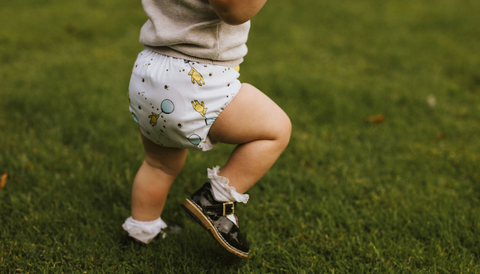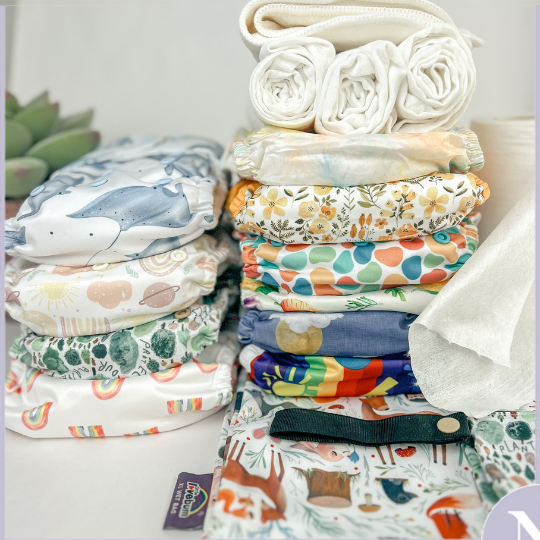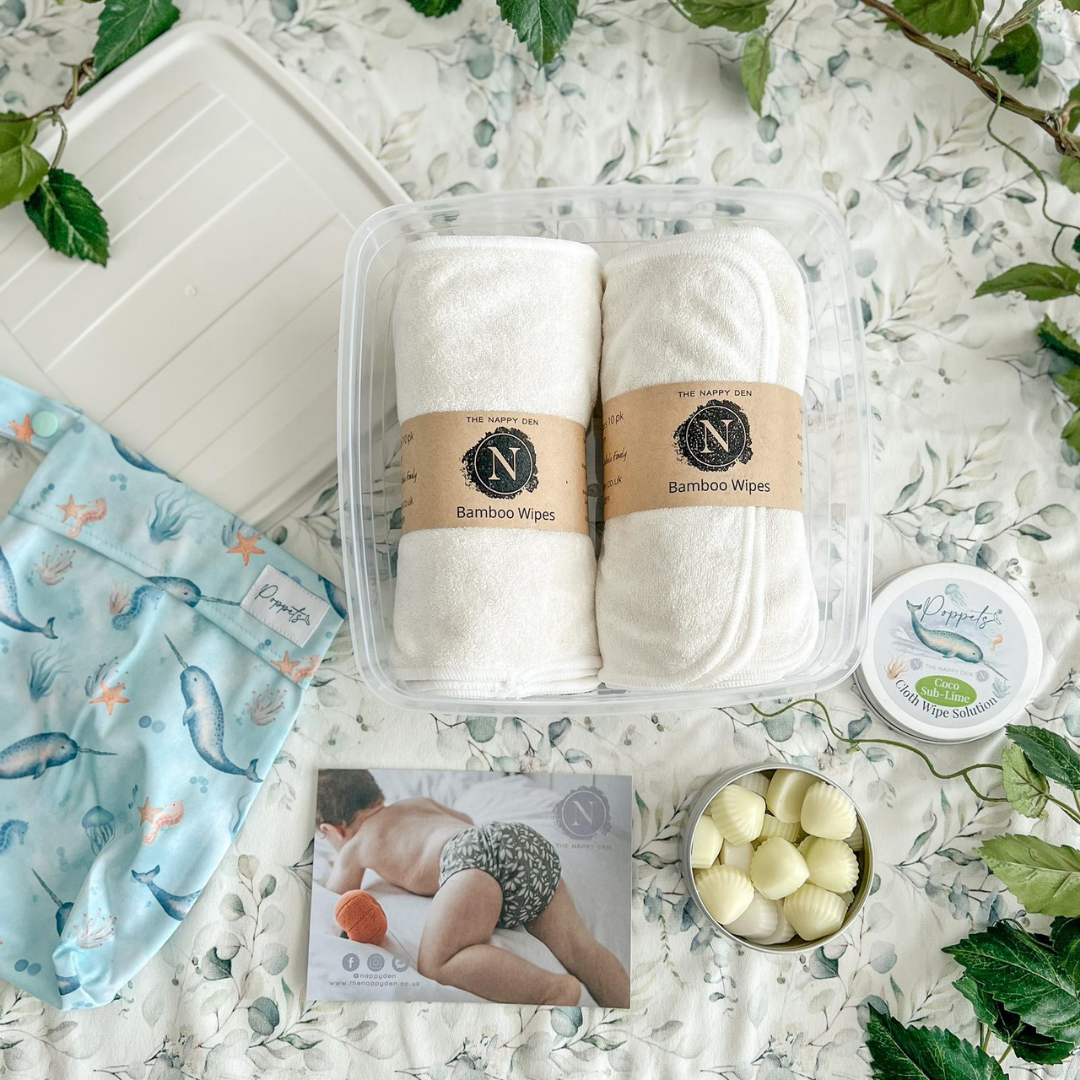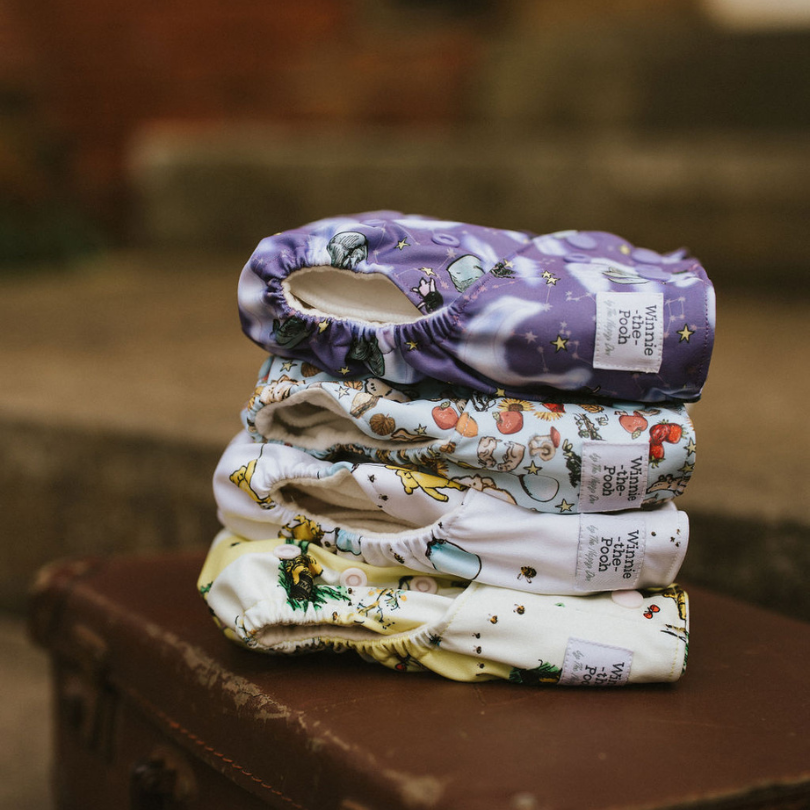A Guide to Embracing Sustainability for Expectant Parents
A Guide to Embracing Sustainability for Expectant Parents
We have put together this guide to embracing sustainability for expectant parents to ensure a sustainable and healthy future for your child. As you eagerly await the arrival of your little one, it's an opportune time to embrace sustainable practices that not only benefit your family but also contribute positively to the environment. Here are some practical and impactful ways to be a sustainable parent when expecting your first baby.
Mindful Consumption
Before your baby arrives, take some time to assess your consumption habits. Choose eco-friendly and organic products for your baby, such as clothing, nappies and bedding made from sustainable materials and chemical-free baby care items. Consider buying second-hand items, like cribs and strollers, to reduce your carbon footprint and minimise waste.
Cloth Nappies
Disposable nappies contribute significantly to landfill waste and take up to 500 years to decompose. Consider using cloth nappies, which are not only environmentally friendly but also cost-effective in the long run. Modern cloth nappies are designed for convenience and easy washing, making them a sustainable choice for parents looking to minimise their impact on the planet. View our range here.

Breastfeeding and Sustainable Feeding Practices
Breastfeeding is not only beneficial for the health of your baby but also an inherently sustainable choice. Breast milk is a natural, renewable resource that requires no packaging and minimal processing.
If breastfeeding is not an option, choose formula brands that prioritise sustainable and ethical practices in their production and packaging and is made in the UK to reduce its carbon footprint.
Create a Green Nursery
Designing a sustainable nursery is a great way to introduce eco-friendly practices into your baby's life from the start. Choose non-toxic and low-VOC (volatile organic compound) paints for the walls, opt for sustainable furniture made from recycled or responsibly sourced materials, and use energy-efficient lighting. Consider decorating with second-hand items or handmade crafts to reduce your environmental impact.
Choose baby bedding which is made using organic materials which have been sustainably grown without the use of pesticides and sourced from reputable suppliers. Many of these organic fabrics will be much better for your baby’s skin too! We love the Little Green Sheep range.
Many baby brands now design and manufacture products which are designed to grow with your child. Look for furniture that grows with your little one to reduce the amount of products which end up in landfill. Look at pushchairs which have the option to be converted to a tandem should you have a second child - all of which will be easier on your purse too.
Energy-Efficient Parenting
Parenthood often involves increased energy consumption, from heating bottles to washing baby clothes. Make your parenting journey more sustainable by investing in energy-efficient appliances and practices. Look at switching to an eco-friendly laundry product brand, we love Wilton London. Many laundry brands now available encourage you to wash at lower temperatures which will save money on energy costs.
Use LED bulbs, turn off lights when not needed or install sensors so that lights don’t get left on. Consider using a programmable thermostat to regulate your home's temperature efficiently and remember, turning your thermostat down just one degree makes a big difference.
Waste Reduction
Minimise your waste by opting for reusable items whenever possible. Use reusable cloth wipes instead of disposable ones. Reusable wipes can be used for all kinds of clean up missions, from bums to faces and sticky hands. Easy to wash at low temperatures make these a super eco-friendly option. You will save pounds on disposable wipes and help to reduce household your waste.
Choose reusable baby food containers. When weaning and preparing your baby’s meals choose silicone moulds which are dishwasher friendly for early weaning days. Use BPA free reusable containers with lids to store prepped meals. This is perfect also for planning and prepping meals as you can freeze them. Cooking in batches will help you save on energy costs too.
Implementing a composting system for food scraps and exploring ways to reduce single-use plastics in your household can also contribute to waste reduction. You can use the compost the following year to feed and nurture your garden or even plant some veggies for sustainable, homegrown food!
Green Transportation
As you navigate the challenges of parenthood, consider sustainable transportation options. Choose eco-friendly and fuel-efficient vehicles or explore alternative transportation methods such as biking or walking when possible.
Carpooling with other parents or using public transport are additional ways to reduce your family's carbon footprint.
Educate and Inspire
Lead by example and instil a sense of environmental responsibility in your child from an early age. Teach them about the importance of recycling, conserving resources, and respecting nature. Engage in activities that connect your family with the environment, such as gardening and growing your own vegetables, walking or hiking. This will foster a love for the planet and a commitment to its preservation.
Becoming a sustainable parent requires conscious choices and a commitment to reducing your environmental impact. By incorporating these practices into your parenting journey, you not only contribute to a healthier planet for your child but also set the foundation for a more sustainable and mindful lifestyle.
Embrace the opportunity to make a positive difference for future generations and create a nurturing environment that reflects your love for your family and the Earth.
Remember it doesn’t have to be all or nothing. Each eco-friendly action you choose to embrace will help to reduce our carbon footprint, reduce carbon emissions, reduce landfill and lead to a healthier planet for our children and future generations.







